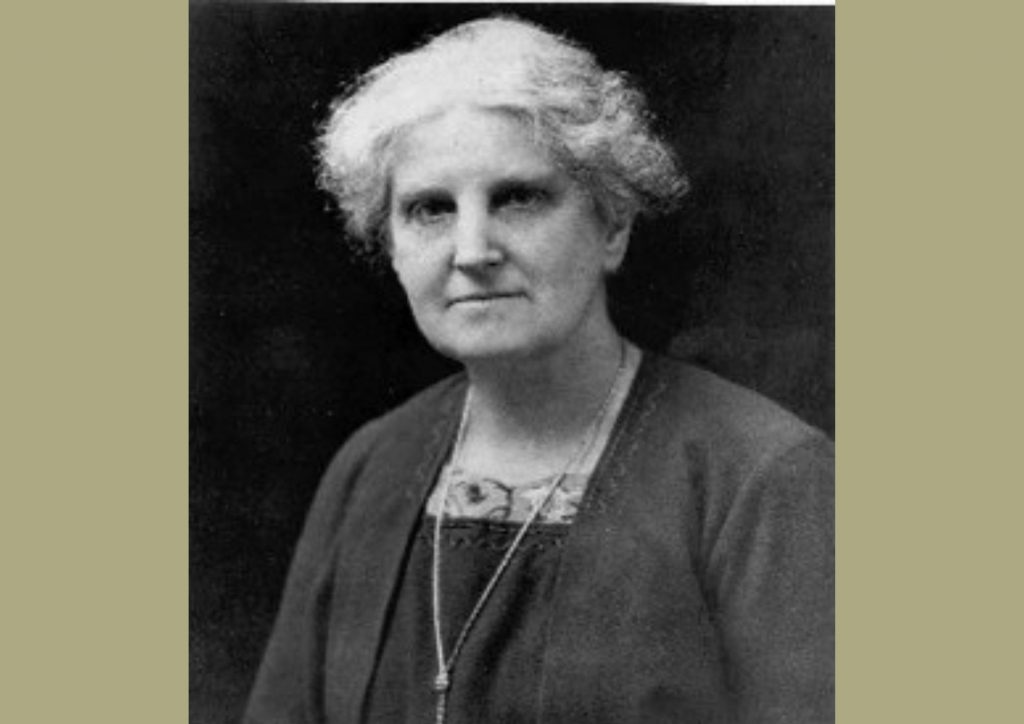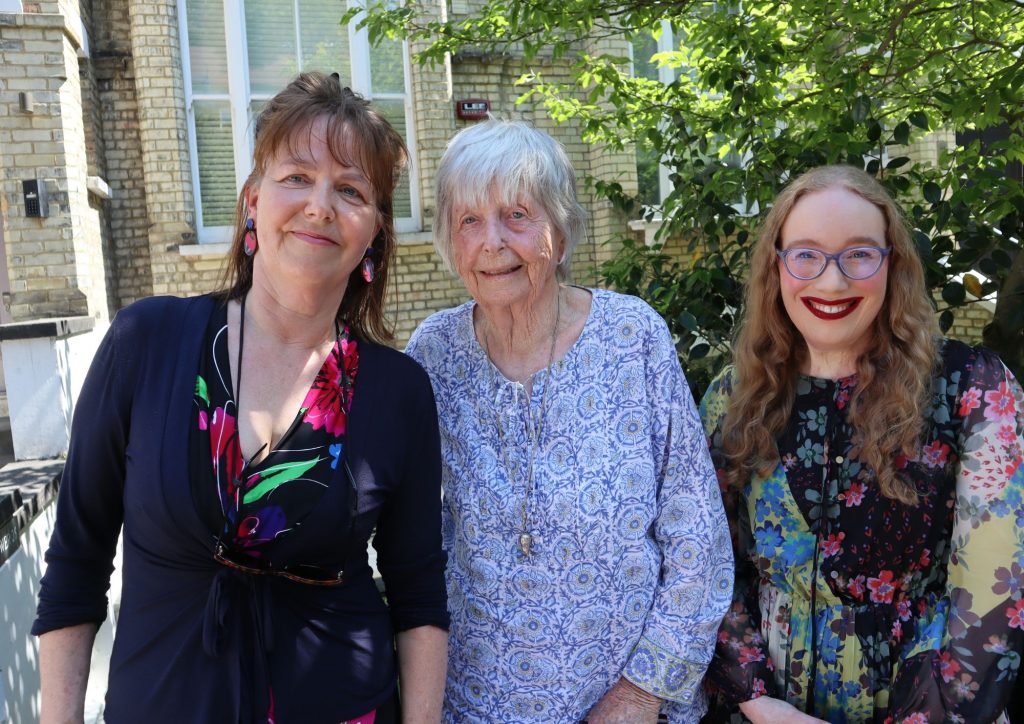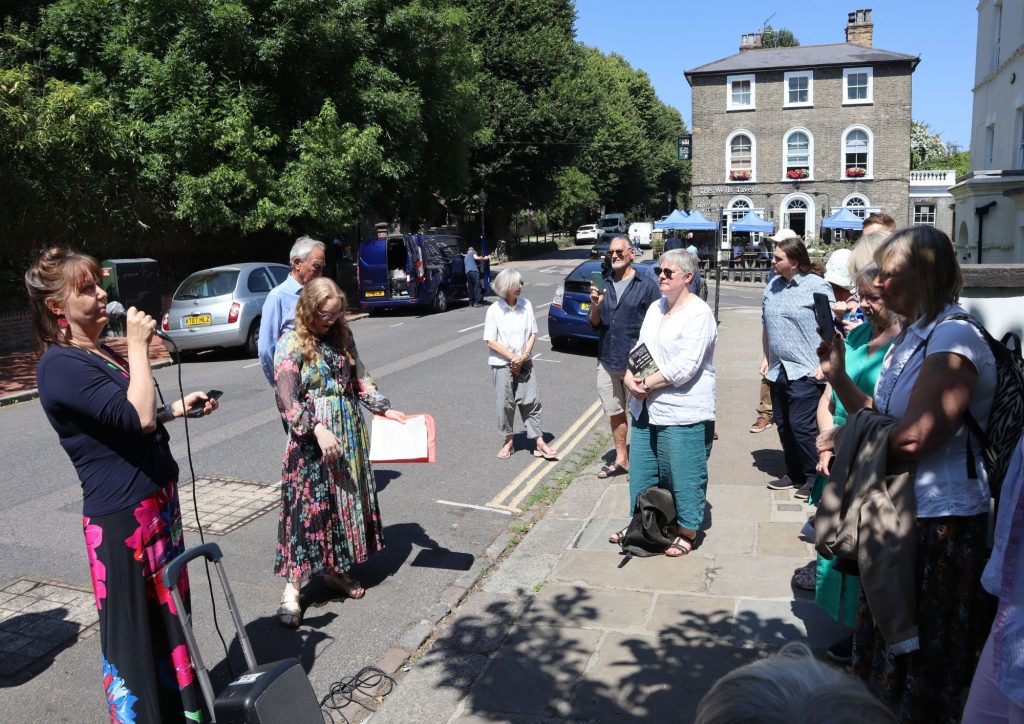Plaque for pioneering feminist who fought to give more women ‘a voice’
Crowd comes out to honour Margaret Llewelyn Davies,
Monday, 30th June 2025 — By Frankie Lister-Fell

A crowd gathered to honour Margaret Llewelyn Davies
A PLAQUE for a pioneering feminist who was friends with Virginia Woolf has been unveiled on her former home in Hampstead.
The Heath and Hampstead Society, in collaboration with the Virginia Woolf Society of Great Britain and descendants of put up a plaque in Well Walk to commemorate Ms Davies.
Marielle O’Neill, a PhD student, said: “Margaret’s tireless advocacy for maternity rights brought about real, practical change. She believed fiercely in giving working-class women something they had long been denied: a voice, a presence and most importantly recognition. She didn’t just campaign for their rights, she demanded society acknowledge the worth off their labour and the dignity of their lives.”

Margaret Llewelyn Davies
Ms Davies, who died in 1944 aged 82, was a formidable force in the British cooperative movement, serving as general secretary of the Co-operative Women’s Guild from 1889 to 1921.
The Guild transformed into a powerful platform for working-class women, advocating for women’s suffrage, fair wages, maternity rights, and divorce law reform.
She was also a dedicated pacifist and a close friend of Virginia Woolf, who contributed the introduction to Davies’s edited collection, Life as We Have Known It (1931).


At the ceremony last Wednesday, Ms Davies’s great-great-niece Emma Dogliani, who runs a music project at Pentonville Prison, said: “I feel proud to share her DNA. I don’t claim to share her intellect, but I have been inspired by hearing about her incredible drive and tenacity and communication skills and skills at breaking down barriers.
“I know that Virginia Woolf wrote that Margaret could compel a steamroller to waltz, and I try and channel that at the prison, because you have to really keep pushing there to make things happen. So there’s a great line of strong and incredible female role models in my family.”
Ms Dogliani’s mother Jane Wynne Wilson said: “My particular good fortune is to be the only person here to have known her – and to have known her extremely well, for the last 11 years of her life, which were the first 11 years of mine. She was really part of my immediate family, either next door when we lived in Dorking after she left London, or actually with us in the Lakes during some months, over a year during the war.
“We had a special bond and this was our love of poetry. I have Margaret’s silver whistle which she wore all the time around her neck. When Lillian Harris [her life companion] became severely deaf as well as being partially sighted, it was my job, even as a 10-year-old, to go and read poetry to Lillian down her ear trumpet, sitting on the floor, reading Keats’s odes, which I didn’t understand at the time. She used to use this whistle to alert Lillian when she wanted to get her attention.”